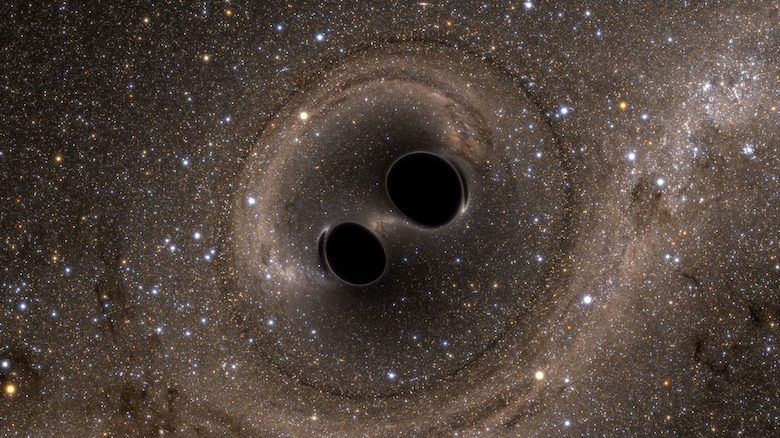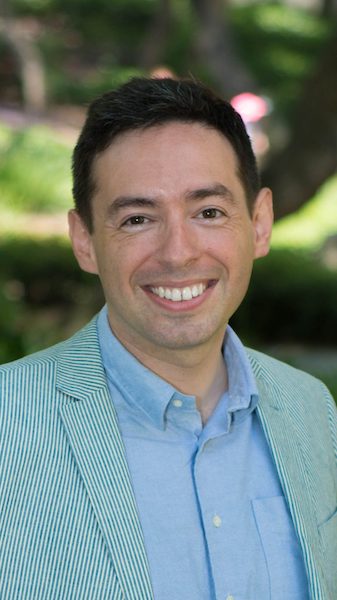UM physicist Leo Stein to discuss deep-space phenomena
APRIL 5, 2019 BY

This illustration simulates what an observer might see if he or she were close to a pair of black holes orbiting each other, close to merging. Photo courtesy of SXS Lensing, Simulating eXtreme Spacetimes Collaboration
The latest observations about the deep-space phenomena of black holes is the topic for a monthly public science forum organized by the University of Mississippi Department of Physics and Astronomy.
The spring semester’s final meeting of the Oxford Science Cafe is set for 6 p.m. Tuesday (April 9) at Uptown Coffee, 265 North Lamar Blvd. Leo Stein, UM assistant professor of physics and astronomy, will discuss “The Truth About Black Holes.” Admission is free.
Along with a team of physicists at California Institute of Technology, Stein recently made waves with research that used supercomputers and artificial intelligence to create the most accurate model yet of black hole mergers.
“Some physicists call black holes the ‘simplest’ objects in the universe, but this is deceptive,” Stein said. “To really understand them, you have to learn to think about curved four-dimensional space-time, which can be pretty challenging.”
Stein’s 40-minute presentation will discuss myths and mysteries about the objects. He also will discuss how they can be observed, using gravitational waves or with the Event Horizon Telescope, which has been working on directly imaging the shadow of the supermassive black holes in the center of our Milky Way galaxy and the center of galaxy M87.

Leo C. Stein
“Everybody is fascinated by black holes,’” he said. “I want to teach people some fun facts about them.”
Event organizer Lorena Magaña Zertuche said Stein’s appearance should be most interesting.
“This science cafe is very timely as researchers of the Laser Interferometer Gravitational-wave Observatory have begun taking new data,” she said. “After a yearlong upgrade, LIGO is as sensitive as ever and can now detect gravitational waves of binary black hole systems that are further out in the universe.
“This cafe is ideal for those who have always wanted to learn about these elusive objects or simply enjoy following the news on cutting-edge black hole research.”
Stein received his bachelor’s degree from California Institute of Technology and his doctorate from Massachusetts Institute of Technology. He was a senior postdoctoral researcher at Caltech from 2015 to 2018 and held a NASA Einstein Fellowship while at Cornell University in 2012-15.
He joined the Ole Miss faculty in 2018. A prolific author, Stein has written numerous articles published in peer-reviewed journals.
For more information about Oxford Science Cafe programs, go to https://www.phy.olemiss.edu/oxfordsciencecafe. Read a Q&A with Stein talking about his recent black hole research here.